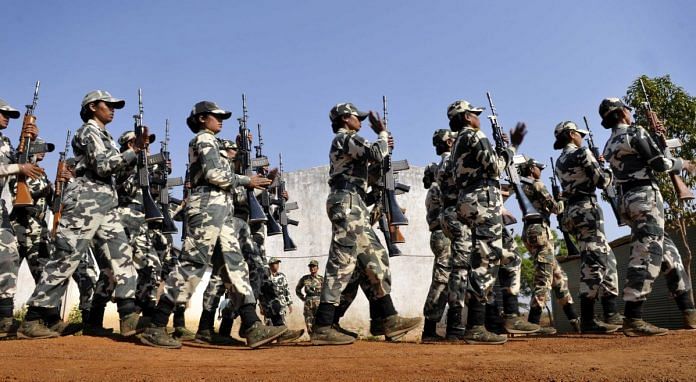Government accepts EC recommendation to extend voting rights to husbands and children of women in forces, posted out of home.
New Delhi: The Centre is set to amend the Representation of People’s Act to make service voter rules — meant for defence services and security forces — more gender neutral. This will allow the husband and children of a serving woman to cast their vote through the ‘service voter’ route.
Service voter rules apply to those posted in locations different from the area where they are registered as voters. As of now, sub-section (8) of Section 20 of Representation of People Act, 1950, allows only the wife of a male ‘service’ voter to cast her vote as a service voter.
The move to make the law more gender neutral comes from the increasing presence of women in the armed and paramilitary forces which have traditionally been male bastions.
There are over 8,300 women serving across the armed forces, as per 2015 figures. This number is expected to increase significantly over the next few years. That apart, in March 2016 the government also announced direct-entry for women officers in all five Central Armed Police Forces .
Home minister Rajnath Singh had announced that women will be inducted in 33 per cent constable-rank personnel in CRPF and CISF and 15 per cent in the border guarding forces BSF, SSB and ITBP.
Under the existing ‘service voter’ rules, the service holder has the option of either voting through postal ballot or through a proxy voter duly appointed by him or her. As per existing provisions, the wife of a service voter shall, if she is ordinarily residing with him, is also deemed to be a service voter in the constituency specified by that person
The Election Commission of India (ECI) has been arguing against these clauses pointing out that it amounted to denial of voting rights to many eligible voters, which is against democratic principles.
EC had recommended to the law ministry that instead of limiting the service voting rights to wives, a more gender neutral word ‘spouse’ should be used so that husbands residing with serving wives may also be able to vote. Similarly, the ECI has suggested that the same rights be extended to children of service voters who are residing with them and are eligible to vote.
ThePrint has learnt that the government has finally accepted the EC recommendation and will soon be moving the Union Cabinet to amend the RP Act. The amendment will require the approval of Parliament.
The service voter
At present, members of Indian Army, Navy and Air Force and personnel of General Reserve Engineer Force (Border Road Organisation), Border Security Force, Indo Tibetan Border Police, Assam Rifles, National Security Guards, Central Reserve Police Force, Central Industrial Security Force and Sashastra Seema Bal are eligible to be registered as service voters.
According to existing norms, the service voter has to make a statement to the effect in the relevant forms saying that his wife ordinarily resides with him. The wife will then be enrolled as a service voter on the basis of declaration made by her husband in the application form itself submitted by him. No separate declaration / application is required to be made by the wife. A son / daughter / relative / servant etc. residing ordinarily with a service voter cannot be enrolled as service voter.
A service voter who opts for voting through a proxy is called classified service voter (CSV).
While an ordinary voter is registered in the electoral roll of the constituency in which his place of ordinary residence is located, a person having service qualification can get enrolled as ‘service voter’ in his native place even though he may actually be residing in a different place (of posting).
He, however, has the option to get himself enrolled as a general voter in the place of his posting if he has been living there for a sufficient duration.







Very Good Decision by Modi government. this can boost women empowerment. but on another hand, it will also come with various drawbacks of this decision.